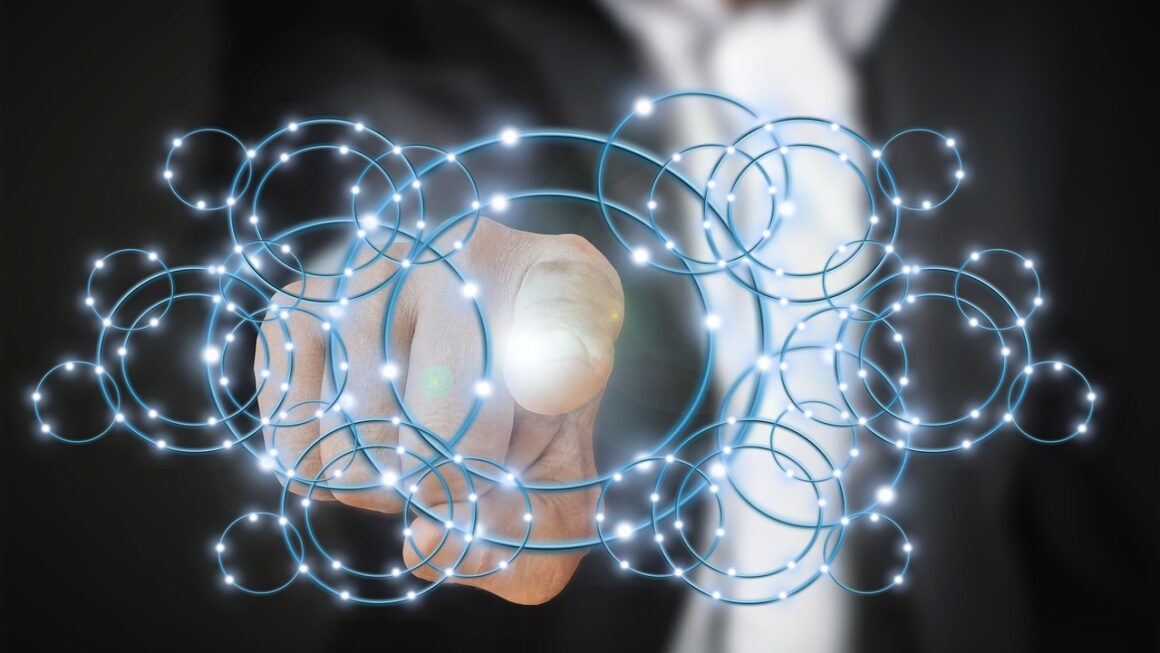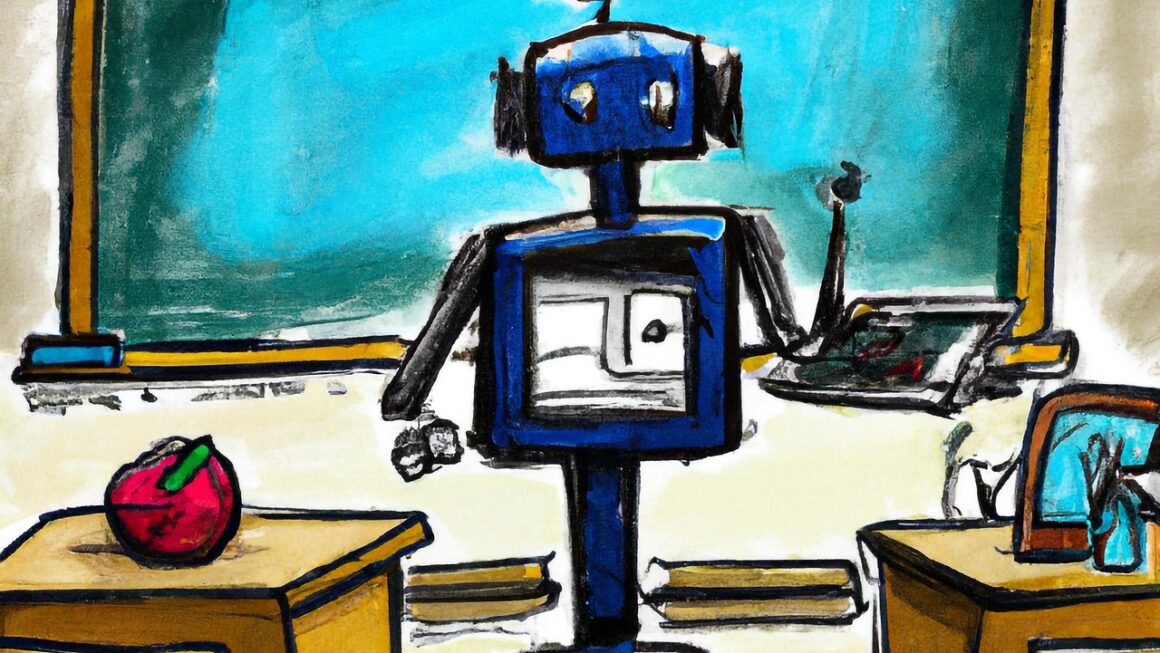AI is no longer a futuristic fantasy – it’s a present-day reality transforming the marketing landscape. From hyper-personalizing customer experiences to automating tedious tasks, artificial intelligence is empowering marketers to achieve unprecedented levels of efficiency and effectiveness. This comprehensive guide explores the multifaceted role of AI in modern marketing, unveiling its potential and providing actionable insights for implementation.
The Rise of AI in Marketing
What is AI and How Does it Apply to Marketing?
Artificial intelligence, in its simplest form, is the ability of a computer system to mimic human cognitive functions like learning, problem-solving, and decision-making. In marketing, this translates into AI-powered tools and platforms that can analyze vast amounts of data, predict customer behavior, automate marketing processes, and personalize communication.
- Machine Learning (ML): A subset of AI that allows systems to learn from data without explicit programming. ML algorithms are used in marketing for tasks like customer segmentation, predictive analytics, and personalized recommendations.
- Natural Language Processing (NLP): Enables computers to understand and process human language. NLP is crucial for sentiment analysis, chatbot development, and voice search optimization.
- Computer Vision: Allows computers to “see” and interpret images and videos. This is used for image recognition in social media analysis and personalized ad targeting.
Why is AI Becoming Essential for Marketers?
The explosion of data and the increasing demand for personalized experiences have made AI indispensable for marketers. Here’s why:
- Data Overload: AI can sift through massive datasets to identify patterns and insights that humans would miss.
- Personalization: AI enables marketers to deliver highly personalized content and offers to individual customers based on their preferences and behavior.
- Automation: AI automates repetitive tasks, freeing up marketers to focus on strategic initiatives and creative endeavors.
- Improved ROI: By optimizing campaigns and targeting the right audience, AI can significantly improve the return on investment on marketing efforts.
- Competitive Advantage: Businesses leveraging AI in marketing gain a significant competitive edge by delivering superior customer experiences and achieving better results.
AI-Powered Personalization: Reaching the Right Audience
Hyper-Personalization Through AI
Gone are the days of generic marketing messages. AI enables marketers to create truly personalized experiences that resonate with individual customers.
- Predictive Analytics: AI algorithms analyze past customer behavior to predict future actions and preferences, enabling proactive marketing.
Example: An e-commerce platform uses AI to predict which customers are most likely to abandon their shopping carts and sends them personalized discount codes to encourage them to complete their purchase.
- Dynamic Content: AI can dynamically adjust website content, email subject lines, and ad copy based on individual customer attributes like demographics, browsing history, and purchase behavior.
Example: A travel website shows different vacation packages to users based on their past travel preferences and search history.
- Personalized Recommendations: AI-powered recommendation engines suggest products or services that are most relevant to each customer.
Example: Netflix uses AI to recommend movies and TV shows based on users’ viewing history and ratings.
Customer Segmentation and Targeting with AI
AI helps marketers segment their audience into granular groups based on shared characteristics and behaviors, enabling highly targeted campaigns.
- Behavioral Segmentation: AI analyzes customer behavior across various touchpoints to identify patterns and create segments based on actions, interests, and engagement levels.
- AI-Driven Ad Targeting: Platforms like Google Ads and Facebook Ads use AI to target ads to specific demographics, interests, and behaviors, ensuring that ads are seen by the most relevant audience.
AI in Content Creation and Curation
Automating Content Creation with AI
While AI cannot replace human creativity entirely, it can assist in automating various aspects of content creation.
- AI-Powered Writing Tools: Tools like Jasper (formerly Jarvis) and Copy.ai use AI to generate blog posts, social media captions, and marketing copy.
- Image and Video Generation: AI can create realistic images and videos from text prompts, enabling marketers to produce visual content quickly and efficiently.
- Content Summarization: AI can automatically summarize lengthy articles and reports, providing marketers with concise overviews of key information.
Content Curation and Optimization
AI can help marketers discover and curate relevant content, and optimize it for search engines and social media.
- Content Discovery: AI-powered tools like BuzzSumo and Feedly analyze social media and web content to identify trending topics and relevant articles.
- SEO Optimization: AI helps marketers optimize their content for search engines by analyzing keywords, optimizing meta descriptions, and improving website structure.
- Social Media Scheduling: AI can analyze social media engagement patterns to determine the best times to post content for maximum reach.
AI-Driven Chatbots and Customer Service
The Power of AI-Powered Chatbots
Chatbots are AI-powered virtual assistants that can interact with customers in real-time, providing instant support and answering questions.
- 24/7 Availability: Chatbots are available 24/7, providing instant support to customers regardless of the time of day.
- Cost-Effectiveness: Chatbots can handle a large volume of customer inquiries simultaneously, reducing the need for human customer service agents.
- Personalized Interactions: AI-powered chatbots can personalize their responses based on customer data and past interactions.
Improving Customer Service with AI
AI can improve customer service in various ways, beyond chatbots.
- Sentiment Analysis: AI analyzes customer feedback to identify negative sentiments and address issues promptly.
- Predictive Customer Service: AI predicts which customers are likely to have issues and proactively reach out to offer assistance.
- Automated Ticket Routing: AI automatically routes customer service tickets to the appropriate agents based on the nature of the issue.
- Example: A telecommunications company uses AI to analyze customer calls and identify customers who are experiencing technical difficulties. The AI then proactively offers technical support or schedules a technician visit.
Analyzing Marketing Data with AI
AI’s Role in Data Analysis and Reporting
AI provides marketers with powerful tools for analyzing vast amounts of data and generating actionable insights.
- Data Visualization: AI can create interactive dashboards and visualizations that make it easier for marketers to understand complex data.
- Anomaly Detection: AI can identify anomalies in data that may indicate fraud, security breaches, or marketing campaign issues.
- Marketing Attribution: AI can help marketers understand which marketing channels are driving the most conversions and revenue.
Predictive Analytics for Marketing
AI enables marketers to predict future outcomes based on historical data, enabling more informed decision-making.
- Sales Forecasting: AI can predict future sales based on historical sales data, market trends, and economic indicators.
- Customer Churn Prediction: AI can predict which customers are likely to churn and proactively take steps to retain them.
- Campaign Performance Prediction: AI can predict the performance of marketing campaigns based on historical data and target audience characteristics.
Example: A subscription box company uses AI to predict which customers are likely to cancel their subscriptions. The company then offers these customers personalized discounts or other incentives to encourage them to stay.
Conclusion
AI is revolutionizing the marketing landscape, empowering marketers to achieve unprecedented levels of personalization, automation, and efficiency. By leveraging AI-powered tools and platforms, businesses can deliver superior customer experiences, optimize their marketing campaigns, and gain a significant competitive advantage. While AI is not a replacement for human creativity and strategic thinking, it is an invaluable asset for any marketer looking to thrive in the data-driven world. Embracing AI in marketing is no longer a question of “if,” but “when” and “how.” Start exploring the possibilities today and unlock the full potential of your marketing efforts.




